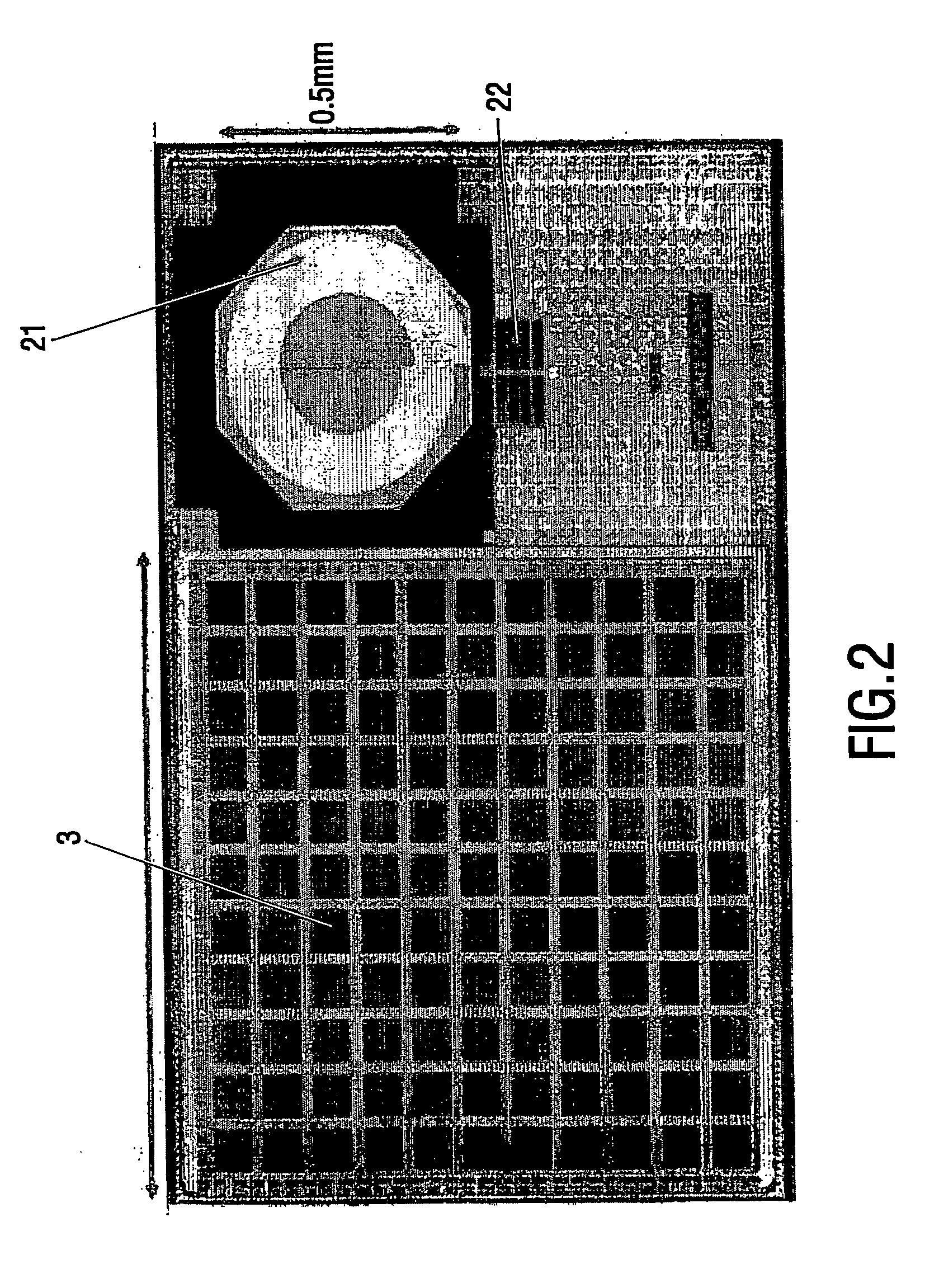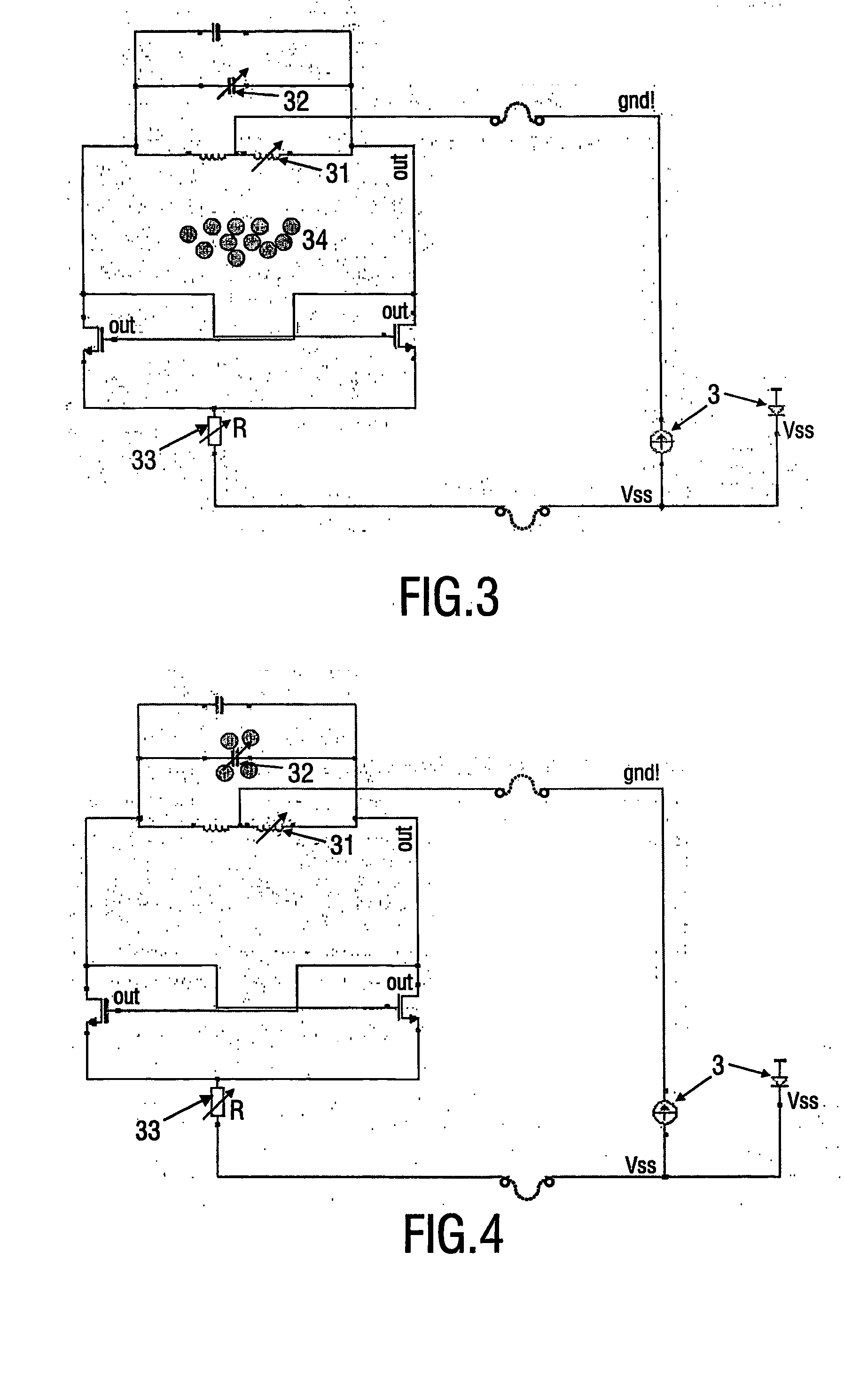Biosensor with rf signal transmission
- Summary
- Abstract
- Description
- Claims
- Application Information
AI Technical Summary
Benefits of technology
Problems solved by technology
Method used
Image
Examples
Embodiment Construction
[0047] The present invention will be described with respect to a number of embodiments and with reference to certain drawings but the invention is not limited thereto.
[0048]FIG. 1 is a schematic representation of the device and method in accordance with the invention. A biosensor cartridge 1 is provided with a photodiode 3 as a remote power transmission element. By shining light 2 on the photodiode the device is provided with power. The light may be visible light, UV or IR light, in an example the wavelength of the light is 780 nm. The device further comprises an oscillator circuit comprising in this example at least an amplifier 4 and a sensor element 5. The resonance frequency (eigenfrequency) is dependent on the properties of the elements forming the resonance circuit, in particular e.g. the capacitance, the inductance or the resistance of the sensor element within the oscillator circuit. Also the mass could have an influence on the oscillating frequency. The device 1 comprises ...
PUM
| Property | Measurement | Unit |
|---|---|---|
| Power | aaaaa | aaaaa |
| Frequency | aaaaa | aaaaa |
Abstract
Description
Claims
Application Information
 Login to View More
Login to View More - R&D
- Intellectual Property
- Life Sciences
- Materials
- Tech Scout
- Unparalleled Data Quality
- Higher Quality Content
- 60% Fewer Hallucinations
Browse by: Latest US Patents, China's latest patents, Technical Efficacy Thesaurus, Application Domain, Technology Topic, Popular Technical Reports.
© 2025 PatSnap. All rights reserved.Legal|Privacy policy|Modern Slavery Act Transparency Statement|Sitemap|About US| Contact US: help@patsnap.com



